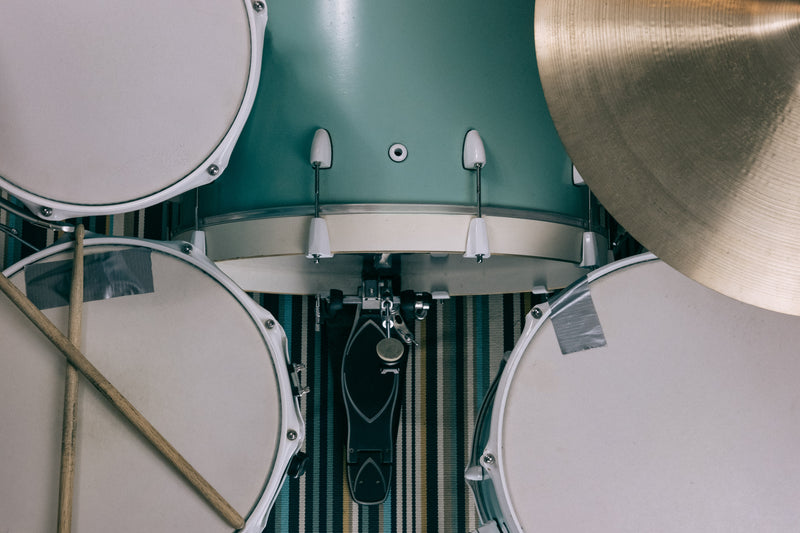Are you passionate about music and considering pursuing a degree in music production? A music production degree program is an excellent way to gain the knowledge and skills required for a successful career in the music industry. But what exactly can you do with a music production degree? In this article, we’ll explore the various career paths available for music production graduates, the skills and experience required for each job role, and the job outlook and earning potential for careers in music production. Whether you’re interested in audio engineering, music composition, sound design, or music technology, read on to learn more about the exciting opportunities available to those with a music production degree.
Table of Contents

Introduction
A music production degree program equips students with the skills and knowledge necessary to create, produce, and distribute music across various mediums. These programs typically focus on teaching students the technical and creative aspects of music production, as well as the business side of the music industry.
Pursuing a music production degree is a significant step towards building a successful career in the music industry. Students who complete these programs are equipped with the technical skills and knowledge required to excel in the industry, and gain a competitive edge in the job market. A music production degree program is an ideal choice for those who are passionate about music and want to turn their passion into a career.
Overview of Music Production Degree Programs
Music production degree programs are designed to provide students with the necessary skills and knowledge to succeed in the music industry. These programs are available at both the undergraduate and graduate level, and typically take four years and one to three years to complete respectively.
To be eligible for a music production degree program, students will need to meet certain educational requirements. These requirements vary by program, but generally include a high school diploma or equivalent, as well as a strong background in music theory and performance. Additionally, students may need to submit a portfolio of their work or complete an audition process to demonstrate their skills and experience.
Music production degree programs typically offer a range of courses that cover topics such as audio engineering, music technology, music composition, sound design, and music business. Students will also have the opportunity to gain practical experience through internships, projects, and collaborations with other students.
Overall, a music production degree can provide students with a solid foundation for a career in the music industry. However, it is important to consider factors such as program reputation, faculty expertise, and job placement rates when choosing a program.

Career Paths in Music Production
If you’re interested in a career in music production, you’ll be pleased to know that the music industry is a vast and diverse field with many different career paths available. Here’s a closer look at the most popular career paths for music production graduates:
Music Producer
Music producers oversee the entire music production process, from songwriting and recording to mixing and mastering. They work closely with musicians and other industry professionals to create high-quality music that is both commercially successful and artistically satisfying.
To become a music producer, you will need a strong background in music theory and performance, as well as excellent communication and leadership skills. According to the U.S. Bureau of Labor Statistics (BLS), the job outlook for music producers is positive, with a projected growth rate of 6% from 2019 to 2029. The median annual salary for music producers is $55,000.
Recording Engineer
Recording engineers are responsible for the technical aspects of music production, including setting up and operating recording equipment, mixing and mastering audio tracks, and editing and processing recorded music. They work closely with music producers and musicians to ensure that the final product meets the desired quality standards.
To become a recording engineer, you will need a strong understanding of audio engineering principles, as well as experience with recording equipment and software. The BLS projects a growth rate of 9% from 2019 to 2029 for recording engineers and a median annual salary of $49,630.
Music Composer
Music composers create original music for a variety of mediums, including films, television shows, video games, and other media. They work closely with directors, producers, and other industry professionals to create music that enhances the overall experience of the medium.
To become a music composer, you will need a strong background in music theory and composition, as well as experience with music software and technology. The BLS projects a growth rate of 2% from 2019 to 2029 for music composers and a median annual salary of $51,670.
Sound Designer
Sound designers create and manipulate sound effects for a variety of media, including films, television shows, and video games. They work closely with directors, producers, and other industry professionals to create sound effects that enhance the overall experience of the medium.
To become a sound designer, you will need a strong understanding of sound design principles, as well as experience with sound editing software and technology. The BLS projects a growth rate of 9% from 2019 to 2029 for sound designers and a median annual salary of $53,380.
Music Teacher
Music teachers teach music theory, composition, and performance to students of all ages and skill levels. They work in a variety of settings, including schools, private studios, and community centers.
To become a music teacher, you will need a strong background in music education, as well as experience with music theory, composition, and performance. The BLS projects a growth rate of 4% from 2019 to 2029 for music teachers and a median annual salary of $72,540.
As you can see, there are many exciting and rewarding career paths available to those with a music production degree. The key to success is to choose a career that aligns with your passions, interests, and skills, and to stay informed about industry trends and advancements.

Building a Career in Music Production
Building a successful career in music production requires a combination of technical skills, industry knowledge, and professional connections. Here are some tips for building a successful career in music production:
Network and Build Professional Relationships
Networking and building professional relationships is essential for success in the music industry. Attend industry conferences, join professional organizations, and connect with other industry professionals on social media to build your network and increase your exposure to job opportunities.
Stay Informed about Industry Trends and Advancements
To stay ahead of the competition, it is crucial to stay informed about industry trends and advancements. Read industry publications, attend industry conferences, and stay up-to-date on the latest music software and technology. Keeping up with industry trends can also help you identify new job opportunities and stay competitive in the job market.
Develop Technical Skills
Developing strong technical skills is vital for a successful career in music production. Consider enrolling in additional courses or workshops to learn new skills and techniques. You can also gain experience by working on your own projects or collaborating with other musicians.
Gain Professional Experience
Gaining professional experience is essential for building a successful career in music production. Start by interning or assisting at a recording studio, music production company, or record label. You can also gain experience by working on independent projects or collaborating with other musicians.
Create a Portfolio
Creating a portfolio of your work is essential for showcasing your skills and experience to potential employers. Include samples of your work, such as recordings, mixes, and production credits. Your portfolio should demonstrate your technical skills, creativity, and ability to work well with others.
Specialize in a Niche
Specializing in a niche can help you stand out in a crowded job market. Consider focusing on a specific genre of music, such as hip-hop, electronic, or rock. You can also specialize in a specific area of music production, such as sound design, audio engineering, or music composition.
Be Persistent
Building a successful career in music production takes persistence and dedication. Be prepared to work hard, take on new challenges, and persevere through setbacks. With hard work and determination, you can achieve your goals and build a successful career in music production.
Music Production Career Paths Comparison Table
If you’re considering a career in music production, it can be helpful to compare different job roles to determine which one is the best fit for you. To make it easier to compare career paths in music production, we’ve put together a table that provides an overview of the responsibilities, required skills, and median salaries for each job role.
Table: Music Production Career Paths Comparison
| Career Path | Responsibilities | Required Skills | Median Annual Salary |
|---|---|---|---|
| Music Producer | Oversee the entire music production process, from songwriting and recording to mixing and mastering | Music theory and performance, communication and leadership skills | $55,000 |
| Recording Engineer | Technical aspects of music production, including setting up and operating recording equipment, mixing and mastering audio tracks | Audio engineering principles, experience with recording equipment and software | $49,630 |
| Music Composer | Create original music for a variety of mediums, including films, television shows, video games, and other media | Music theory and composition, experience with music software and technology | $51,670 |
| Sound Designer | Create and manipulate sound effects for a variety of media, including films, television shows, and video games | Sound design principles, experience with sound editing software and technology | $53,380 |
| Music Teacher | Teach music theory, composition, and performance to students of all ages and skill levels | Music education, music theory, composition, and performance skills | $72,540 |
The table provides a concise comparison of each career path, highlighting the responsibilities, required skills, and median annual salary for each job role. By reviewing this information, you can gain a better understanding of which career path aligns best with your interests and skill set.

Conclusion
In conclusion, pursuing a degree in music production can open up a world of exciting career opportunities in the music industry. There are various career paths to choose from, such as becoming a music producer, recording engineer, music composer, sound designer, or music teacher. With the right skills, experience, and connections, you can build a successful and fulfilling career in music production.
Keep in mind that the music industry is constantly evolving, so it’s important to stay informed about the latest trends and advancements. Attend industry events, network with other professionals, and continue honing your craft to stay competitive in the job market.
If you’re passionate about music and want to turn that passion into a career, pursuing a music production degree can be a great first step. Check out our other content for more information on music industry careers and tips for success.


